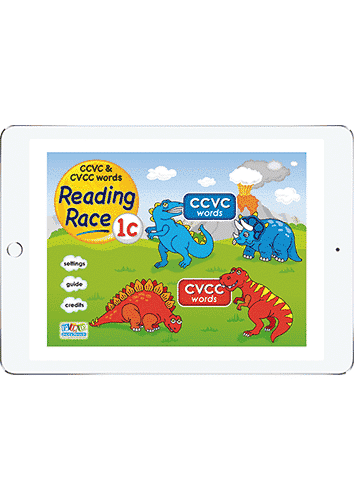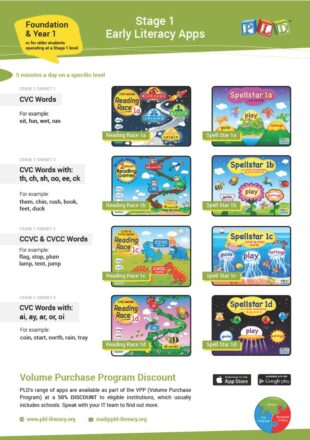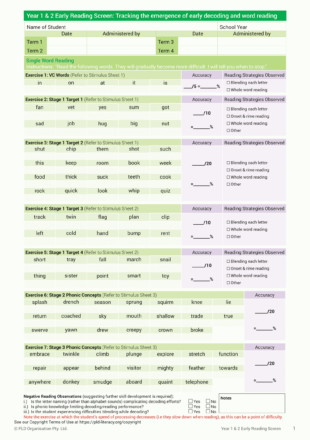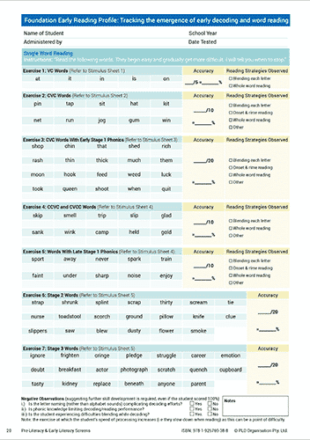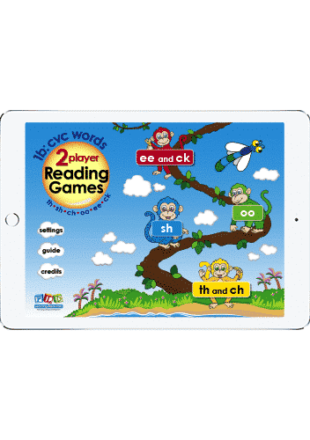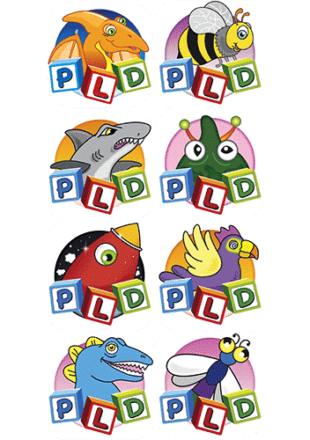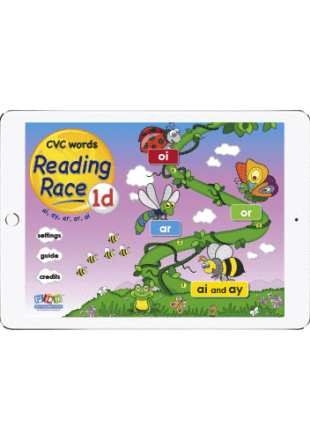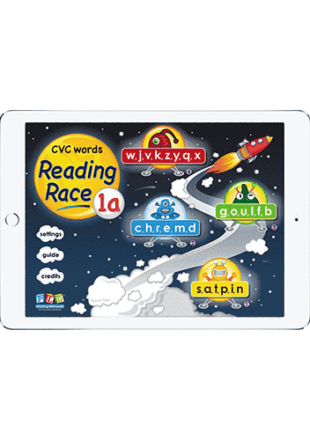Two Player Reading 1c – ccvc and cvcc words
 Year Level:
Year Level: Foundation, Year 1 & 2
The third app (from a set of four), 1c: CCVC and CVCC words is an innovative two player early literacy game designed by Diana Rigg a renowned Australian Speech Pathologist and Educator. One of the few genuine phonics based activities perfect for early childhood classrooms.
This two player game is designed to provide early readers with multiple opportunities:
- To rehearse their decoding and single word reading skills.
- To extend decoding and reading skills by introducing four sound words that contain double constants, initially at the start of words(i.e. CCVC words) and then at the end of words (i.e. CVCC words).
Particular consideration has been given to:
- Alphabet and phonic sounds rather than letter naming.
- Phonemic Awareness
- An ordered sequence of reading concepts
HOW TO PLAY
Once the app loads, the settings (located on bottom left hand corner of the title page) can be accessed. Within the settings there is the choice of a slow, medium or fast game pace. Before starting, the level of the game will need to be selected. It is always recommended that children start at the initial level and progress through each level in the specified order.
Two players then position themselves on either side of the iPad. When the game commences, the instruction will be given to ‘read the word’. This is followed by the revealing of the individual sounds within the word and short pause in which the students have the opportunity to blend the sounds and identify the word before the app names the word.
Three mixed words are then presented directly in front of each player. Two of the words are distractor words plus the word that was read
just moments ago. The players then race to select the focus word.
The player who is first to correctly identify the word, has a section of their dinosaur coloured. The game concludes when one of the dinosaur is fully coloured.
The game came can then be repeated over and over and when appropriate the students can progress up and through the levels.
PARTICULAR CONSIDERATION HAS BEEN GIVEN TO THE FOLLOWING AREAS
1. Alphabet and phonic sounds rather than letter naming.
Children require alphabet and phonic knowledge in order to read and spell. However, rather than letter naming ability, alphabet sound and phonic sound knowledge is the more important skill.
In order to decode a word such as ‘frog’, a student must be able to recognise each of the four alphabet symbols and then verbalise the associated alphabet sounds: “f-r-o-g”.
No alphabet letter naming came into the process. For this reason these games only provide alphabet and phonic sound support.
2. Phonemic Awareness
Phonemic awareness refers to an individual’s ability
to focus on the phonemic or sound structure of words. Phonemic awareness is particularly important as it
has been shown by researchers to be an important prerequisite skill for reading and spelling.
When decoding (or reading a word) a child must blend sounds together. Using the example of the word ‘wink’, a student must be able to recognise and then verbalise each of the four alphabet sounds. The final stage involves blending or combining the sounds together.
3. An ordered sequence of reading concepts.
App 1c: Four sound words that contain double constants:
CCVC words – E.g. Frog, stop, club. CVCC words – E.g. Went, held, jump.
Other apps within the range include:
[Two Player]
[Single Player]
[Single Player Stage 1 Spelling Apps]
[App Bundles]



